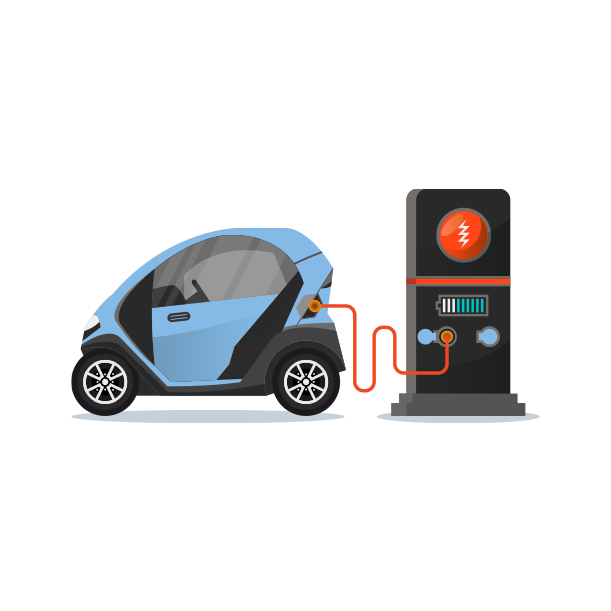In This Article
Introduction
An increase in demand of Electric vehicles, backed by government regulations, has supported the recovery of post pandemic auto industry. Many prominent companies have invested in EV tech resulting in an expansion of a variety of new jobs.
Industry leaders are very bullish about the growth trajectory of the electric vehicles driven by changing consumers mindset for sustainable alternatives, government’s push, and investments. Indian EV industry received a record investment of around Rs 25,000 crore in just seven months of 2021. The government expects the EV sector in the country to create more than 10 million jobs in the near future.
Advent of Electric Vehicles
If one has to describe the last two years in a statement – it would be – always expect the unexpected. The COVID-19 pandemic has fundamentally altered almost everything usual. It has impacted socio-economic growth unlike anything before. Its impact on the auto sector is also quite evident. A total of 2,38,120 electric vehicles were sold in the country in FY2021, down 19.41 percent as compared to 2,95,497 units in FY2020. Needless to say, the spread of Covid-19 virus & time-to-time lockdowns across the country contributed big-time in this decline. Now you must be thinking – how are we expecting – a bright future for EV in India when the numbers show a downtrend. That’s because of the recovery it has shown in the on-going year. In the first six months, 29,288 electric scooters have been sold, that’s more than the total numbers of units sold in 2020 which stood at 25,598. Yes, the electric segment size is still very small as compared to the petrol-diesel vehicles, but the numbers surely seem encouraging. Not just increasing numbers, Industry leaders are very bullish about the growth trajectory of the electric vehicles driven by changing consumers mindset for sustainable alternatives, government’s push, and investments. Did you know Indian EV industry received a record investment of around Rs 25,000 crore in just seven months of 2021. This number includes a collective investment by electric vehicles manufacturers as well the component makers. Automakers like Mahindra & Mahindra, Hyundai, Ashok Leyland, Ola and TVS are some of the leading investors in the E-vehicle space.
Where are the jobs emerging?
With Several Thousand Crores Being Invested Every Year In The E-Vehicle Segment, The Space Is Bound To Create A Substantial Number Of Jobs in automobile sector For The Indian Youth. Ola, The Most Talked-About Player In The Electric Auto Space Currently, Has Announced Job Creation Of Almost 10,000 Professionals via their upcoming mega scooter plant. Hero Electric, one of the first players to enter the E-scooter space, recently received a fresh round of funding and is all set to expand. Not just manufacturing plants, but dealerships and even charging stations are likely to offer jobs soon. “At least four metros and four cosmopolitan cities are likely to have 60 charging stations each in the first phase. This will create at least 10,000 to 12,000 jobs,” says Sudeep Sen, Business Head, Team Lease, a manpower consulting firm. The government expects the EV sector in the country to create more than 10 million jobs in the near future. From designing & manufacturing, sales & service, automation and charging & battery swapping infrastructure, there are endless opportunities coming up for young professionals in the E-vehicle segment.
Waiving off Registration Charges
On August 2nd 2021, the Ministry of Transport and Highways has now exempted all the battery operated vehicles from any sort of fees for the issuance or renewal of registration certificates as well as the assignment of new registration marks. Now this will bring uniformity across the states as some of these already had registration exemption for E-vehicles in place, leading to stimulating further demand and thus driving job creation in the sector.
FAME II
Started by the Department of Heavy Industries, FAME scheme was introduced for rapid adoption of hybrid and electric vehicles. In 2019, FAME was updated, and FAME II came into existence. The incentives under this scheme vary for different vehicles. Two-wheelers are eligible for a subsidy of INR 15,000 per kWh of battery capacity and can go upto 40 percent of the vehicle cost. While for a four-wheeler, the subsidy stands at INR 10,000 per kWh of battery capacity and can go upto INR 1.5 lacs.

 />
/>



